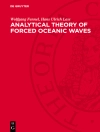Over the past decade, building smarter, resilient cities is an established global trend in urban development, including developing countries. Unexpected external shocks, disasters and damage from climate change have major impacts on sustainable growth and well-being for citizens in today’s cities and requires comprehensive solutions. To deal with these negative events, cities predominantly invest in hard physical infrastructure, with less attention on non-physical soft assets which are intangible in nature and more difficult to quantify, but essential to achieve effective, balanced sustainable development. The value of soft assets can be substantial, and consistent implementation by cities can generate diverse value and be transformative for their urban development. For that purpose, cities need to establish an appropriate strategy, framework and structure to incorporate soft assets during the plan and implementation of hard infrastructure.
This book argues that integrating soft assets in smart, resilient city development is critical to make the hard infrastructure work effectively and create value for cities. The literature review underlines that soft capital can be defined as: 1) human, 2) institutional, 3) external, 4) technology and information, and 5) social. The book also examines how soft assets can be effectively integrated into and create value for smart, resilient city development. Based on previous findings and original research, a unique approach is adopted through the verification of different city-level approaches using the concept of influential nodes, showcasing layered and composite value creation. The analysis addresses innovative implementation factors which enhance disaster resilience and the environment, which is particularly relevant for cities in developing countries. Drawing on previous research, in-depth reviews, new data, and case studies, the book provides new insights and specific policy and action measures to enhance the utilization of soft asset components in parallel with hard infrastructure in smart and resilient city in developing countries.
Mục lục
.- Introduction.
.- Soft Assets Review of Recent Literature.
.- Defining Soft Assets.
.- The India Smart City Mission Program.
.- Utilization of Soft Assets Case Studies.
.- Discussion.
.- Conclusion.
Giới thiệu về tác giả
Eiko Wataya currently works as a Project Management Specialist (capacity development) at the Asian Development Bank, Manila, Philippines. Previously, she worked at the World Bank, starting as a lead program coordinator in Tokyo, where she oversaw the development and mangement of the distance learning program protrolio. She then moved to Washington D.C., where she served as a knowledge management and capacity development officer in disaster risk management in East Asia and Pacific Region. Before that she was a country officer for Indonesia at the Japan Bank for International Cooperation (now JICA). She holds M.Sc. in Social Policy and Planning in Developing Countries from the London School of Economics and Political Science, London, UK and Ph.D. in Media and Governance from Keio University, Japan.
Rajib Shaw is a professor in the Graduate School of Media and Governance at Keio University, Japan. He is also a senior fellow of the Institute of Global Environmental Strategies (IGES) Japan, and the chairperson of the Sustainable Environment and Ecological Development Society (SEEDS) Asia and the Church World Service (CWS) Japan, two Japanese NGOs. He is a co-founder of a Delhi (India)-based social entrepreneur startup, the Resilience Innovation Knowledge Academy (RIKA). Earlier, he was the executive director of the Integrated Research on Disaster Risk (IRDR) and was a professor at Kyoto University. His expertise includes disaster governance, community-based disaster risk management, climate change adaptation, urban risk management, and disaster and environmental education. Professor Shaw was the chair of the United Nations Science Technology Advisory Group (STAG) for disaster risk reduction and currently is the co-chair of the Asia Pacific Science Technology Academic Advisory Group (APSTAAG).












